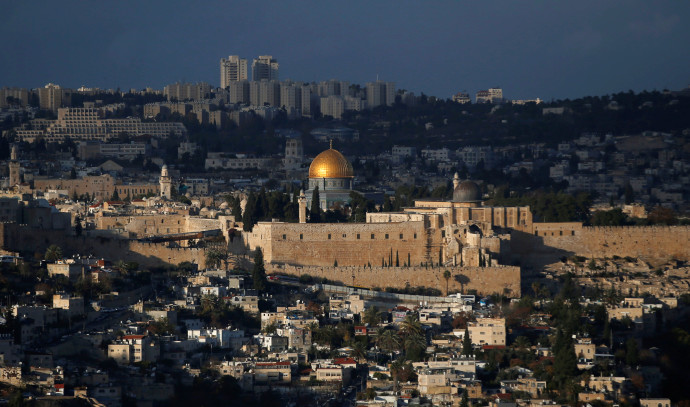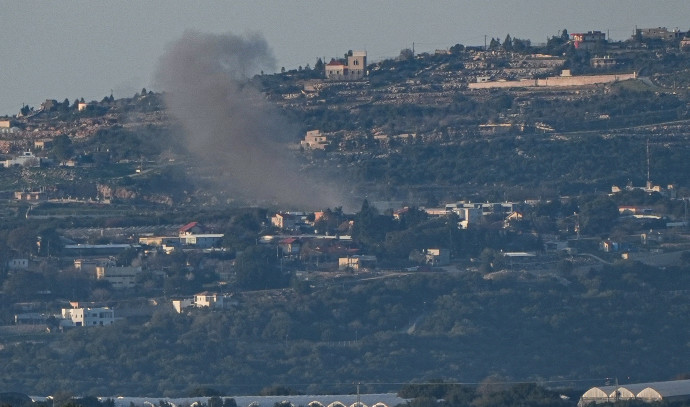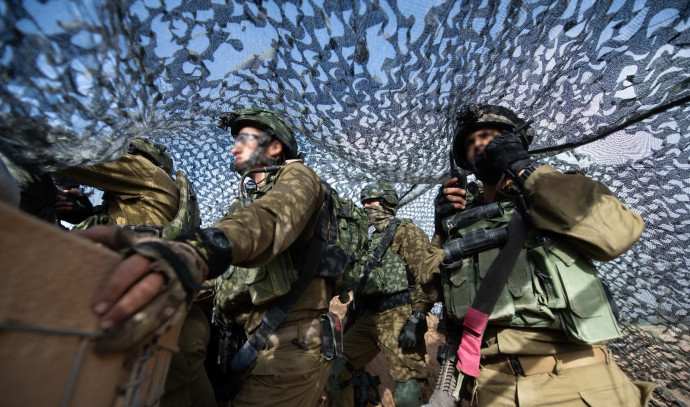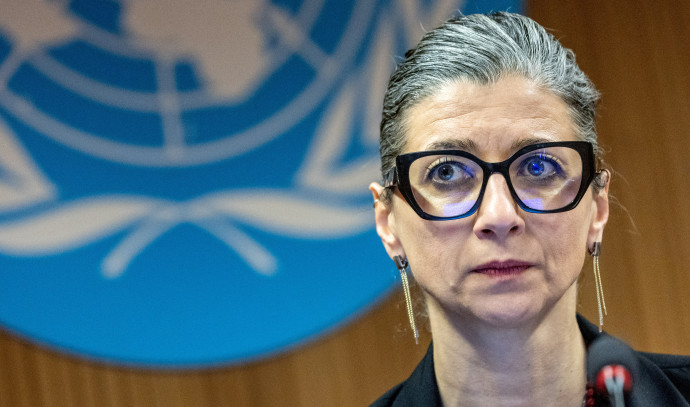world news
Why does Europe recognize a Palestinian state separate from Israel?
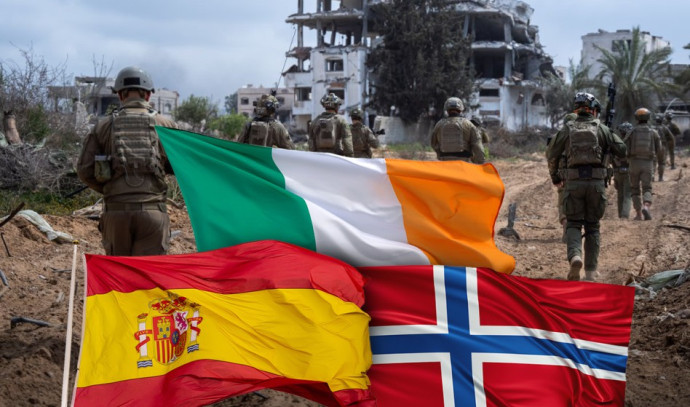
Spain, Ireland, and Norway’s recognition of a Palestinian state is perceived in Israel as a product of antisemitism and an anti-Israel stance in the Israeli-Palestinian conflict. However, it is not necessarily, certainly not exclusively, related to these positions. This step can also be seen as a European ideal to change the course of history and to reinforce Europe’s influence in the Middle East.
Politics are driven by power and control. These concepts are not only achieved through military force but can also be implemented through the dissemination of cultural and political ideas. Starting from the mid-19th century until its end, Europe experienced a national awakening. Within this context, Christian Europe shaped the idea of the nation-state. Europe did not think then about nations outside itself, but some of them had already begun to think about themselves. This happened in Asia, the Americas, and even in Africa. The Jews, in their own way, quickly adopted the new idea and created Zionism.
In contrast, the Muslim world never fully embraced this political organization. This is particularly true among Arabs in the Middle East. The adoption of the nation-state idea in territories like Egypt, Iraq, Jordan, Syria, and Lebanon is still partial and territorial to this day and is explicitly a product of European colonialism. At some point, Muslim Arabs understood that in order to break free from European colonial rule, they needed to learn to speak their language and establish organizations that would be legitimate in their eyes, and quickly created national resistance movements against European colonialism.
These movements have over time transformed into nation-states. Yet from the authentic consciousness of the Arabs in the region, the concept of nationalism is still a foreign concept. It is no coincidence that Arab-Muslim nation-states in the Middle East remain weak and fragile to this day, with some of them undergoing more or less advanced processes of disintegration.
Israel’s influence on Muslim ideals
Veterans of the IDF are certainly surprised by the stubborn resistance of Hamas in Gaza. They are used to Arab soldiers in the service of nation-states, who abandon the battlefield in a panic as soon as things start to get messy. The Arab/Muslim trust in nationalism is so tenuous that loyalty to the nation is not a sufficient motivation for a soldier to risk his life.
In contrast, Hamas succeeds in arousing authentic tribal impulses and providing motivation and even enthusiasm to its murderous terrorists, because Hamas is formally a nationalist movement. Hamas demands the territory of the Land of Israel and the expulsion of the Jews from it mainly in the name of Islam. In its view, the Land of Israel is their holy land and the Jews are infidels. This idea finds shorter and more direct routes to the hearts of the Palestinians, as it has been pumped for almost 1,500 years by all the Muslim empires that ruled over the Land of Israel.
So faced with Hamas, which emphasizes the religious aspect of the conflict and receives funding from Iran that promotes the idea of a Muslim empire – the historical enemy of Christian Europe – Europe is trying to forcefully reintroduce the European idea of a Muslim nation-state to the region, because a Palestinian state based on the European nationalist idea will remain weak and dependent on Europe. It seems that this is the profound truth behind the European recognition of the Palestinian nation-state. Of course, the move also has a connection to Israel and the century-old conflict, but that is certainly not the sole reason.
world news
Netanyahu, IDF at odds over how many haredim it can absorb

Prime Minister Benjamin Netanyahu’s briefing to the Knesset Foreign Affairs and Defense Committee on Monday put him at odds with the IDF regarding how many haredi the military can absorb in a short amount of time.
Netanyahu said that while he was in favor of increasing haredi integration into the IDF, in practicality, the military needed more time to establish haredi-tailored programs and environments for this to be successful.
The prime minister’s remark comes days after top IDF officials presented a series of highly specific, customized programs for the ultra-Orthodox that are either already open or are “ready to go” as soon as the haredi respond to their military summons. This directly contradicts the prime minister’s words during the briefing.
Netanyahu spoke to the committee in a closed and classified hearing, but portions of what he said were, nevertheless, publicized, including his comments regarding haredi integration into the IDF.
When asked about the issue, Netanyahu said, “We would prefer that anyone who is not studying [in a yeshiva] share the burden [of military service.] But right now, there is a gap between what the army says it can absorb and what it can absorb, so the absorption capacity of the IDF needs to be increased.”
He added that there were intentions to create new frameworks that would allow the haredi to maintain their way of life as well as to respond to operational needs, such as establishing an ultra-Orthodox base along the border with Jordan that would be responsible for defense there.
How to fulfill the IDF’s need for more soldiers
Besides that example, Netanyahu said that the army’s need for more soldiers could be filled by extending the service of mandatory service soldiers as well as calling up a variety of reservists from among the population living in border communities who never responded to their call-ups or were given exemptions.
In contrast to Netanyahu’s statements, seeming to indicate that the IDF cannot absorb a significant increase of haredi men, the military has said repeatedly, dating back to August, that it has been ready to receive an additional 3,000 haredi per year, on top of the approximately 1,800 per year it has already been absorbing.
The announcement in August and the sending of summons to 3,000 members of the ultra-Orthodox community came after months of extensive work and the investment of significant resources to prepare both personnel and bases for a new, major influx.
One new option for service that the IDF has already added for the haredi to make their service more attractive is serving in technical and logistical capacities at hardened aircraft shelters at an air force base section where only men will serve.
Another new option is called the Yoav Track in logistics command centers, which includes fulfilling a wide variety of technical and logistic roles throughout the military, and not just in the Israel Air Force.
Also, though Netanyahu said that the IDF should look into forming a new haredi brigade, the military had already announced last week that on December 26, it would open one, distinct from Netzach Yehuda.
Netzach Yehuda had been the brigade that most of the haredi wanted to join to date. However, it has turned off many of the ultra-orthodox because it has a reputation for being more religious Zionist in nature than haredi.
Additionally, there is a recently established unit of haredi serving at the Ofer detention center, and that program is expected to grow.
Further, a Lt.-Col. with a hassidic Chabad background, who has joined the army. He will be focused on haredi affairs and making sure new inductees are comfortable and are having their needs addressed.
Despite a detailed presentation last week about all of these new service mediums as being already established for haredim, a spokesperson for Netanyahu doubled down on the claim that the IDF was still lacking in its capacity to absorb a major influx of haredi soldiers.
Tovah Lazaroff contributed to this report.
world news
Paul Weller, Primal Scream, Kneecap headline London’s ‘Gig for Gaza’

British rocker Paul Weller, Scottish band Primal Scream, and Irish rappers Kneecap will headline a ‘Gig For Gaza’ charity show at London’s O2 Academy Brixton on Dec. 13.
Weller, the former frontman for 1970s punk pioneers The Jam, is curating the show, with all proceeds going to organizations Medical Aid For Palestinians and Gaza Forever, which purportedly provide essential aid – including food, medical supplies, and emergency shelter – for Gazans who have been forced to flee their homes due to the Israel-Hamas War.
“This is an opportunity to enjoy a night of powerful music and make a tangible difference in the lives of people facing unimaginable hardship,” a press release for the show said. The concert will also feature guest speakers and short films.
Weller of Primal Scream performed with Palestinian flag
During a recent tour of the US, Weller, a longtime advocate for leftwing causes, performed with a Palestinian flag draped over his guitar amplifier. Speaking onstage from Glasgow, Scotland, last month, Weller said, “I would like to dedicate that last song to all the tens of thousands of women, children, babies, men, civilians in Palestine and Gaza. I would ask you one question. It’s really simple. There is no grey area. Are you for genocide, or are you against it? It’s a f–-king yes or no question…”
Over the summer, Primal Scream, which formed in the 1980s, gave their support for a jersey design for a Palestinian refugee football team based on their classic record ‘Screamadelica.’
In March, Kneecap withdrew from performing at the SXSW Festival in Austin, Texas, after it was revealed that the US Army was a “super sponsor” of the event as well as defense contractor RTX Corporation.
“It is done in solidarity with the people of Palestine and to highlight the unacceptable deep links the festival has to weapons companies,” the group explained of their decision via Instagram. “This will have a significant financial impact on Kneecap… but it isn’t an iota of hardship when compared with the suffering being inflicted on the people of Gaza.
None of the artists appearing nor promo material for the concert mentioned the 101 Israeli hostages being held by Hamas in Gaza, nor the October 7 massacre that killed over 1,200 Israelis and sparked the current war aimed at toppling Hamas.
David Brinn contributed to this report.
world news
Two-state solution support rises in West Bank, Gaza, Arab-American communities – poll

Support for a two-state solution in the Middle East among Arab Americans and Palestinians residing in the West Bank and Gaza is on the rise, according to two recent surveys.
The more recent survey from YouGov and Arab News was published on Tuesday. The Palestinian Center for Policy and Survey Research (PSR) published the other in September.
A survey of Arab Americans leading up to the US presidential elections found that half of those polled (50%) believed in seeking a two-state solution.
The poll touched upon the future of the conflict and possible resolutions to see its conclusion. Half of Arab-Americans polled believed in seeking a two-state solution with shared governance over Jerusalem. 34% believe that there should be one state where Israelis and Palestinians have equal rights, and 9% stated that they were unsure.A separate poll conducted by the Palestinian Center for Policy and Survey Research (PSR) in September found that support for the concept of the two-state solution among Palestinians continues to rise and has the support of 39% of those polled.
According to PSR, three months prior, support for two states stood at around 32%. Figures were taken from Gaza and the West Bank, at 39% and 38%, respectively.
However, when asked about a separate Palestinian state not linked to the “two-state solution” and when state borders are identified as those of 1967, support rises to 59%, PSR found.
Half of the respondents prefer the two-state solution based on the 1967 borders, while 19% prefer a confederation between the two states of Palestine and Israel. Only 10% prefer establishing a single state with equality between Israelis and Palestinians.
When asked about solving the conflict and reaching statehood, nearly half of Palestinian respondents (48%) said they would choose “armed struggle” as a way to achieve it (50% in the West Bank, 36% in Gaza).
However, a third said they preferred negotiations to end the conflict, and 15% said they would like to see popular peaceful resistance.
International calls for two-states
Recent US administrations and other global actors have called for the end to the ongoing war and to reach a two-state solution between Israelis and Palestinians.
The Biden administration has attempted to broker a hostage and ceasefire deal as a first step. In remarks made ahead of the 79th session of the UN General Assembly in September, US President Joe Biden reiterated his support for a two-state solution.
“As we look ahead, we must also address the rise of violence against innocent Palestinians on the West Bank and set the conditions for a better future, including a two-state solution, where the world — where Israel enjoys security and peace and full recognition and normalized relations with all its neighbors, where Palestinians live in security, dignity, and self-determination in a state of their own,” Biden said.
The survey conducted by Arab News and YouGov was conducted using a sample of 500 Arab Americans across the United States from September 26 to October 1, 2024. The survey data have a margin of error of +/- 5.93%.
The poll conducted by PSR comprised a sample size of 1,200 people, of whom 790 were interviewed face-to-face in the West Bank and 410 in Gaza. The margin of error stood at +/-3.5%.
-

 Solar Energy3 years ago
Solar Energy3 years agoDLR testing the use of molten salt in a solar power plant in Portugal
-
world news1 year ago
Gulf, France aid Gaza, Russia evacuates citizens
-

 Camera1 year ago
Camera1 year agoDJI Air 3 vs. Mini 4 Pro: which compact drone is best?
-
world news1 year ago
Strong majority of Americans support Israel-Hamas hostage deal
-

 Camera4 years ago
Camera4 years agoCharles ‘Chuck’ Geschke, co-founder of Adobe and inventor of the PDF, dies at 81
-

 Solar Energy12 months ago
Solar Energy12 months agoGlencore eyes options on battery recycling project
-

 Camera1 year ago
Camera1 year agoSony a9 III: what you need to know
-

 TOP SCEINCE7 months ago
TOP SCEINCE7 months agoCan animals count?


